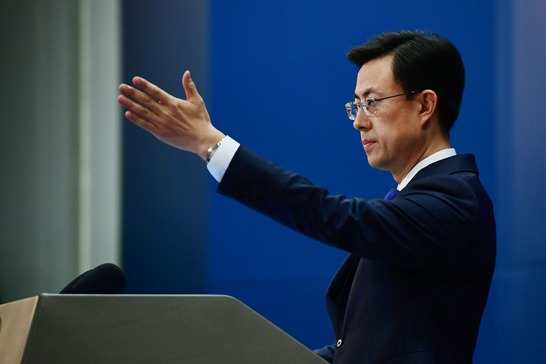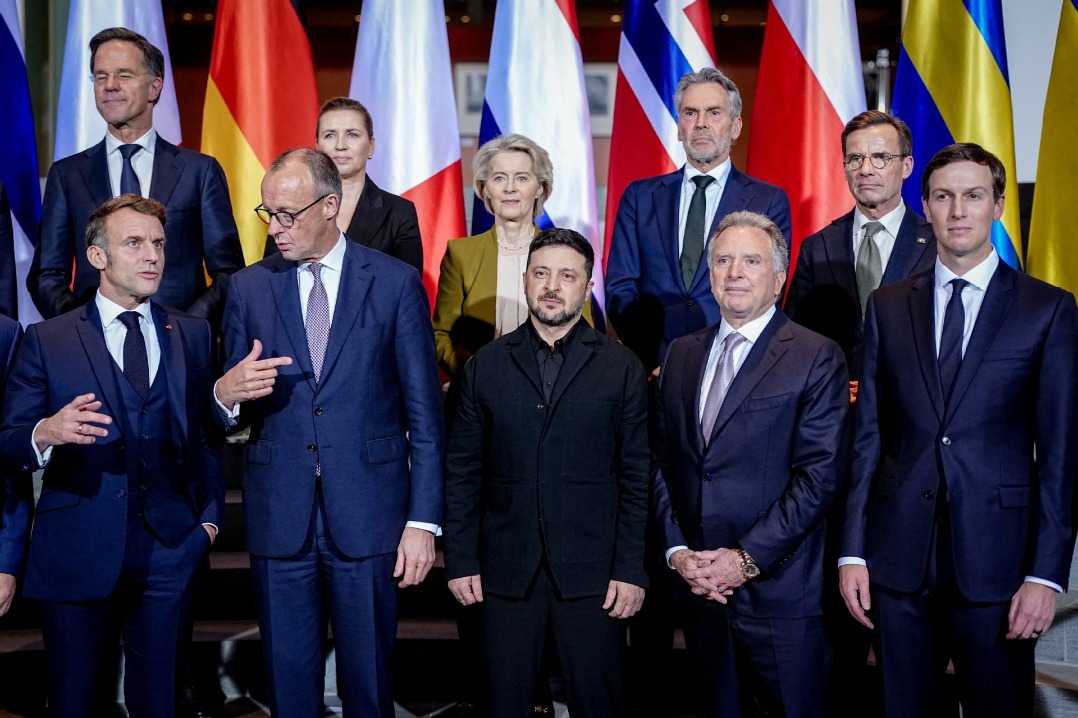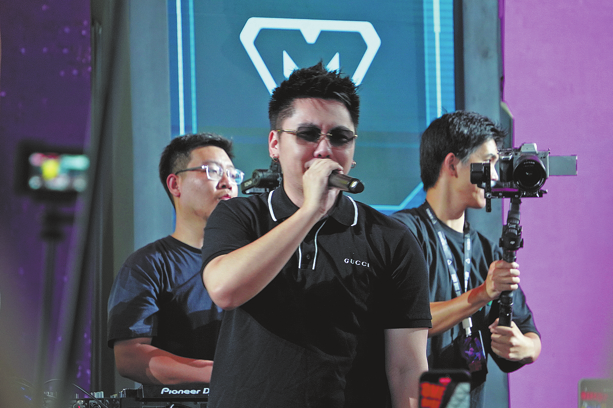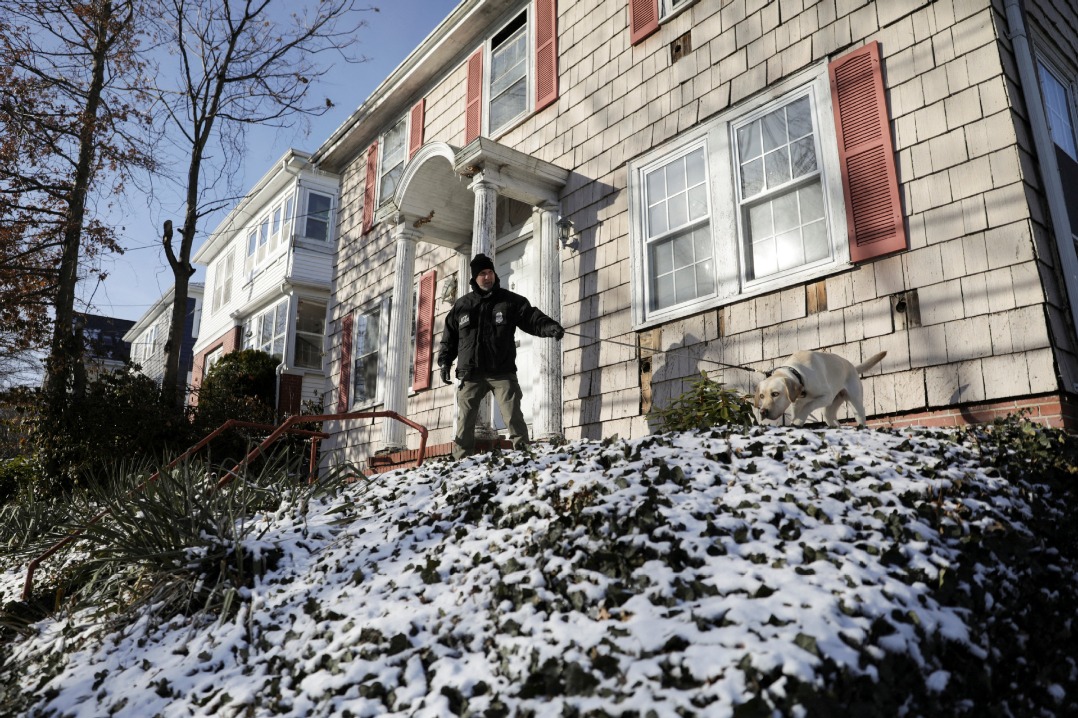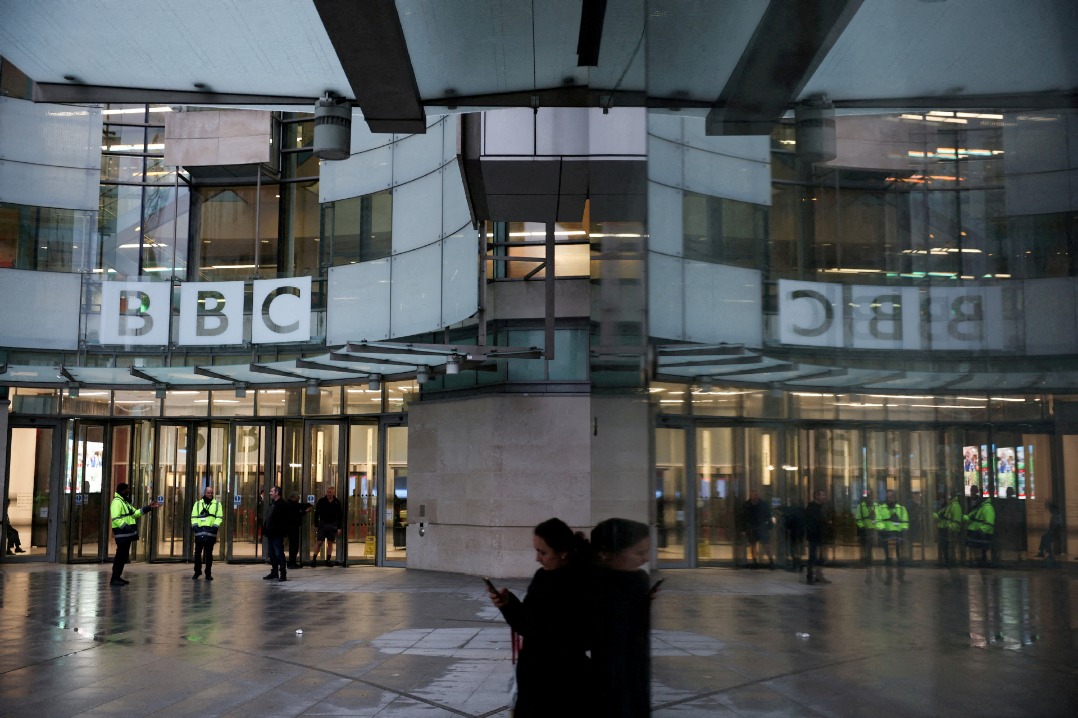US visit aims to widen scope of exchanges
Senior Party official shows Beijing's practical, flexible approach, expert says


As the first senior Chinese official to visit the United States in the new year, Liu Jianchao, head of the International Department of the Communist Party of China Central Committee, has attracted huge attention at home and abroad for his whirlwind trip in the past week.
During the visit, which took him from New York and Washington, DC, on the East Coast to San Francisco on the West Coast, he reached out to people from all walks of life, including senior government officials, members of Congress, think tank members, business leaders and media representatives. He also met with United Nations Secretary-General Antonio Guterres.
Zhao Minghao, a professor at Fudan University's Institute of International Studies, said the visit was clear evidence of the "practical approach and flexibility" of China and Liu's department in addressing US ties.
The Chinese delegation led by Liu addressed a number of topics and exchanged views on China's growth prospects, China-US ties and global governance with various parties during the visit from Jan 8 to Saturday.
As a sign of US interest in Liu and his mission, Michael Froman, president of the nonpartisan US think tank Council on Foreign Relations, noted before Liu's speech on Tuesday that, "in addition to the people in the room today… we have over 400 CFR members participating virtually".
Observers noted that the senior Party diplomat's visit is part of the increasing liaisons between Beijing and Washington in various fields and at various levels in the new year.
President Xi Jinping and US President Joe Biden exchanged congratulatory letters on Jan 1 to mark the 45th anniversary of the bilateral diplomatic ties. In addition, the 17th China-US Defense Policy Coordination Talks were held in Washington on Jan 8 and 9, and Minister of Commerce Wang Wentao held talks by phone with US Commerce Secretary Gina Raimondo on Thursday.
Wu Xinbo, dean of Fudan University's Institute of International Studies, said, "The frequent official interactions following the presidents' San Francisco summit (in November) show the renewed joint efforts in securing the momentum for repairing the ties, and there are still a lot of issues remaining to be settled."
"The wide range and high level of US officials who talked to Liu also remind people about the great emphasis Washington placed on his visit," Wu added.
In the wake of what the White House described as a "candid and constructive" meeting with US Principal Deputy National Security Advisor Jon Finer on Wednesday, Liu met with US Secretary of State Antony Blinken in Washington on Friday and discussed China-US ties.
"The two sides agreed to strengthen dialogue and cooperation" and further realize the San Francisco summit consensus, and Liu highlighted the need for both sides to "work toward the same goal and push for stable, sound and sustained growth of China-US ties", according to a statement from Liu's department.
Beijing and Washington have a history of political party exchanges.
Wang Jiarui, head of the CPC Central Committee International Department from 2003 to 2015, traveled to the US several times during his tenure, hosted high-level dialogues between Chinese and US political parties, and met with people from all walks of life.
Liu, who assumed his current post in 2022, also attended the 13th China-US political parties dialogue via virtual format last year, but his trip to the US this year was not limited to political party exchanges. He spoke to local officials, scholars and ordinary people on topics ranging from China's path to modernization and the Taiwan question to giant pandas.
During his talks with San Francisco Mayor London Breed on Saturday, Liu voiced hopes for greater people-to-people exchanges and collaboration at the subnational level.
While addressing audiences in US communities, Liu told stories about the Party and the nation in a plain way, in an effort to tackle any lack of understanding, minimize doubts and offset negative narratives about China and the Party, observers said.
Zhao, the Fudan University professor, said that during the trip, "Liu's speeches given in fluent English outlined Beijing's perception on the world order and the country's quality growth, and he responded efficiently to claims such as 'China challenges the world order', which will help iron out Washington's miscalculations and misjudgment on China's strategic intentions".
Experts noted that with the US presidential election coming up later this year, campaign rhetoric aimed at China and the Taiwan question is among the factors that may have a great impact on the hard-won improvement of China-US relations. They said that Washington will need to take more steps toward the same goal with Beijing to keep the ties afloat.
Su Xiaohui, deputy director of the Department of American Studies at the China Institute of International Studies, said, "Great challenges may emerge as the Republicans and Democrats, as is routine, may play the 'China card'on the campaign trail."
She noted that during Liu's trip, he stated clearly China's determination to champion national interests and warned the US about the risks of attempts to push China's bottom line.
"Having this said is in some sense also a necessary way to reduce risks," she said.
"Recently, the two sides have been resuming, establishing or putting into play dialogue mechanisms in various fields and at various levels," Su said. "This means that the ties may hopefully enjoy more stability."
















